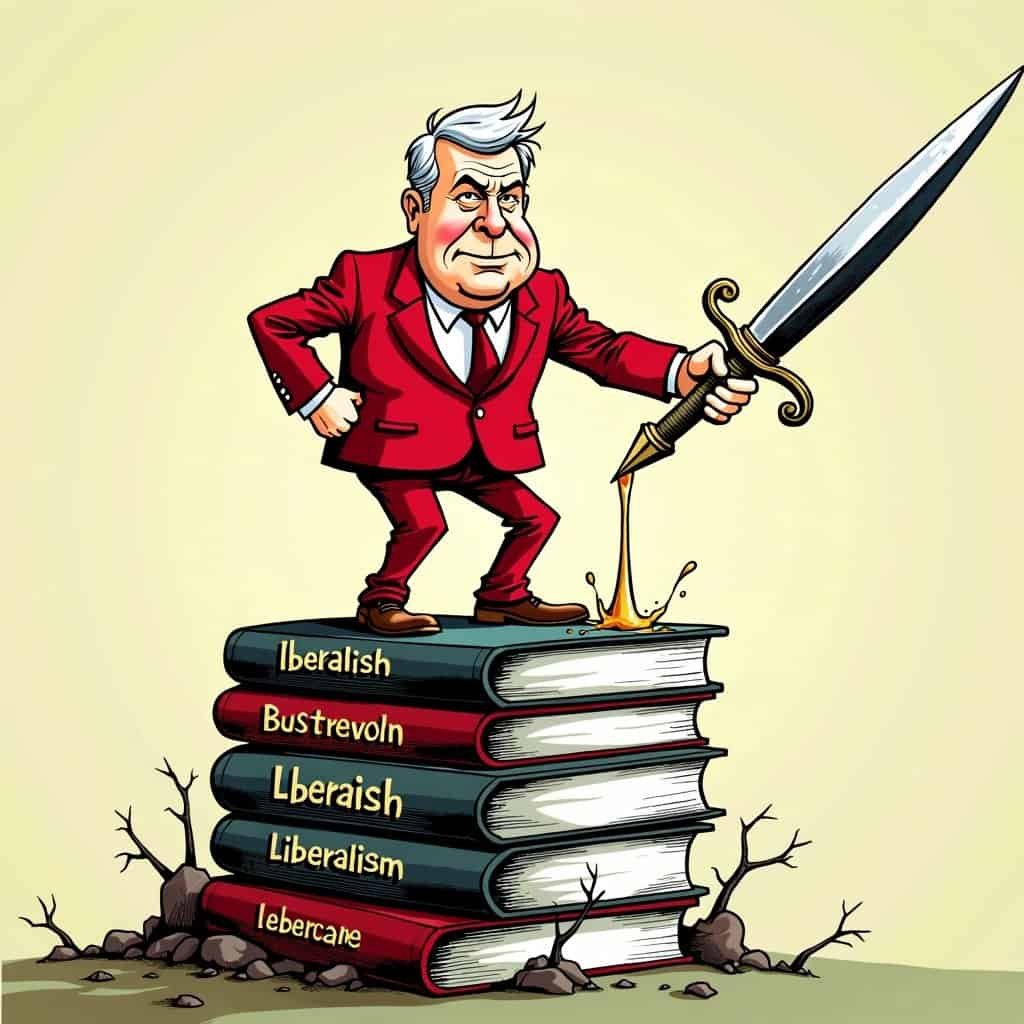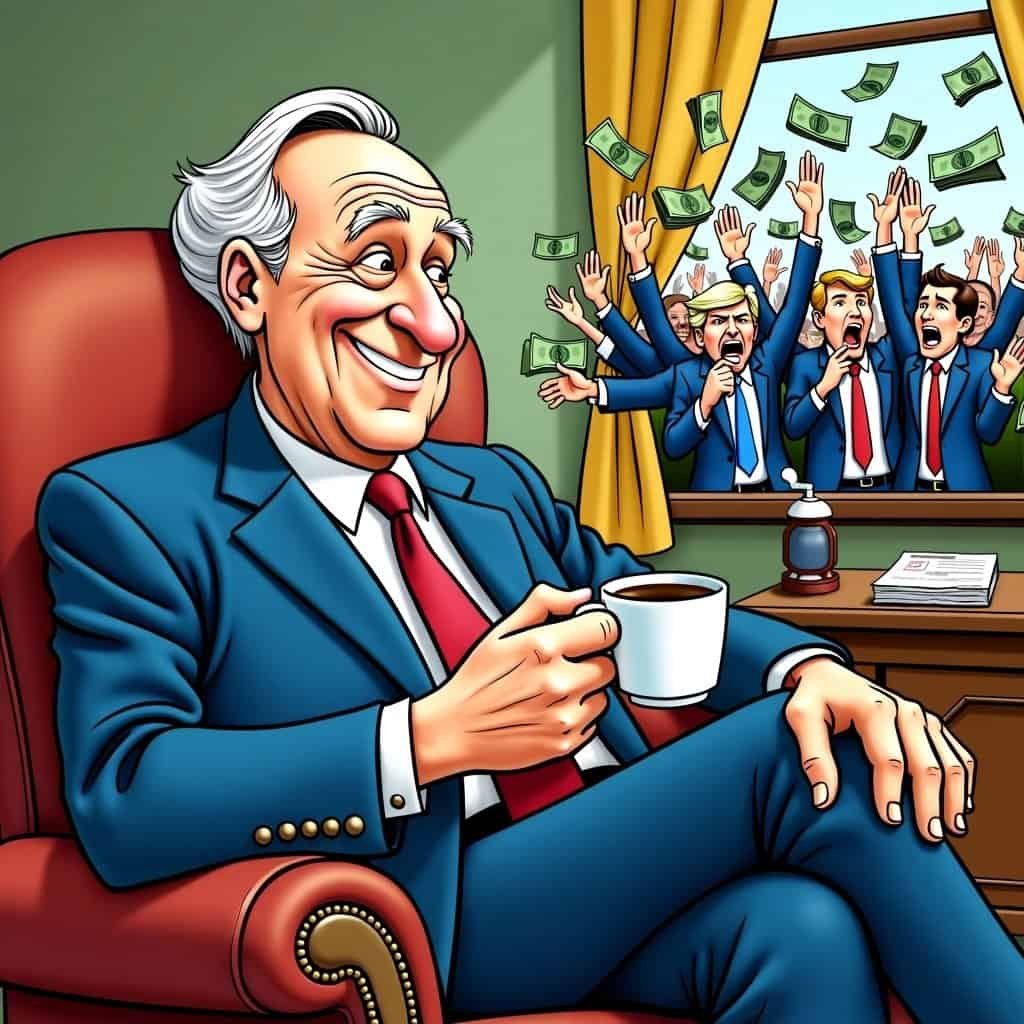Ever wondered what it’d be like to chat with William F. Buckley Jr. at a cocktail party? Picture this: a room buzzing with witty exchanges, intellectual debates, and perhaps a sly jab at big government. Buckley, the conservative thought powerhouse, wasn’t just another talking head; he was the litmus test for right-wing economic genius. So, what did he really think about conservative economics? Let’s peel back the layers and see.
This wordsmith extraordinaire championed what we now consider the pillars of conservative economic policies. He could sell the benefits of tax cuts, less red tape, and private sector growth with an eloquence that would make Shakespeare jealous. In Buckley’s view, a rising tide doesn’t just lift yachts – it lifts all boats.
The conservative triple threat – tax cuts, less regulation, and private investment – isn’t just empty rhetoric. These are the building blocks Buckley held dear. Why? Because they create a self-feeding cycle of growth that benefits everyone, not just a select few. Lower taxes encourage businesses to invest, leading to more jobs, better pay, and increased spending. It’s not just economic theory; it’s poetry in motion.
Conservative vs. Liberal Economic Approaches
| Conservative Approach | Liberal Approach |
|---|---|
| Lower taxes | Higher taxes |
| Deregulation | Government intervention |
| Private sector growth | Income redistribution |
| Long-term economic growth | Short-term relief |
Now, let’s consider the alternatives. The liberal or progressive approach favors higher taxes and government meddling to reduce income gaps. In Buckley’s eyes, this was like trying to water your garden with a fire hose – messy, wasteful, and likely to leave you soaked in unintended consequences. Sure, it might offer quick relief, but in the long run, it chokes investment and slows economic growth. And let’s face it, who wants to be stuck in a constant drizzle when they could bask in the sunshine of economic prosperity?
What makes conservative economic policies so appealing is their focus on expanding the tax base. Don’t doze off yet; this is where it gets interesting. As the economy grows, so does the number of taxpayers and the total amount of taxable income. Even with lower tax rates, this larger tax base leads to higher overall tax revenues. These funds can then support essential government services, including safety nets for those who can’t fully participate in the economy due to age, illness, or disability. It’s like planting a tree and enjoying its shade, but with the added bonus of fruit for everyone else’s basket too.
Innovation and Entrepreneurship: The Heart of the Economy
During his time, Buckley argued that innovation and entrepreneurship should be the lifeblood of the American economy. And let’s be clear, he wasn’t just talking about tech startups. Lower taxes and fewer rules encourage these entities to plow their savings back into new ventures, research, and development. This leads to new industries, better-paying jobs, and overall economic growth.
The Buckley Effect on Innovation
- Lower taxes ➡️ More funds for businesses
- Fewer regulations ➡️ Easier to start and grow businesses
- Increased investment ➡️ New industries and technologies
- Economic growth ➡️ Better-paying jobs
It’s worth noting his take on the infamous wealth gap. Buckley recognized that conservative policies might lead to a growing wealth gap. But, and it’s a big but, the overall prosperity of society rises together. As the wealthiest gain more, those at the bottom of the income scale see significant improvements in their economic situation. Think of it as a seesaw, but one where everyone keeps going higher instead of taking turns hitting the ground.
On the flip side, the liberal or progressive approach seems to fret over income inequality. Their solution? Higher taxes on the wealthy and businesses to fund government programs. Sounds noble, right? Unfortunately, this method may lead to reduced investment and slower economic growth, ultimately shrinking the economic pie. As history shows, when the pie shrinks, everyone gets a smaller slice, and suddenly, those lofty ideals of equality start looking like pipe dreams.
Government Spending: Less is More
If you’re still with me – and I bet you are, because who could resist Buckley’s charm – let’s talk about government spending. Buckley was skeptical of big government and the inevitable increases in spending funded by higher taxes on the working class. This not only discourages investment but also breeds dependency on state support. In contrast, conservative policies aim to sustain and boost American prosperity over time, preserving the independence and dignity of each individual. It’s the difference between teaching a man to fish and simply tossing sardines at him.
To wrap it up, William F. Buckley Jr.’s support for conservative economic policies wasn’t just about numbers on a spreadsheet. It was about creating an environment where innovation thrives, entrepreneurship flourishes, and each person’s potential can be fully realized. With his wit, wisdom, and a healthy dose of humor, Buckley made the case that conservative economic policies aren’t just good for business – they’re good for the soul of America. Now, that’s something worth raising a glass to. Cheers!
Table of Contents
- Conservative vs. Liberal Economic Approaches
- Innovation and Entrepreneurship: The Heart of the Economy
- Government Spending: Less is More






